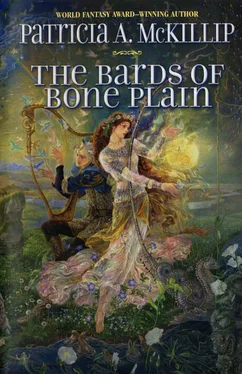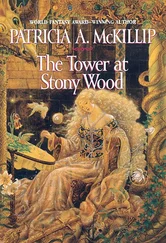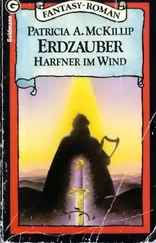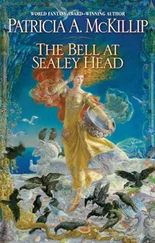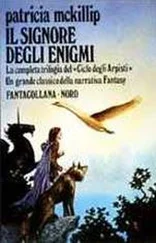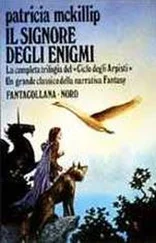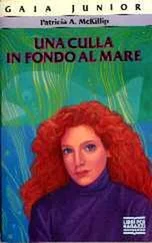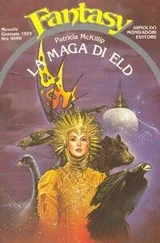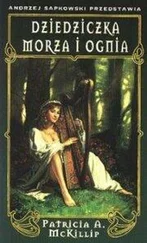The poet had not mentioned those things.
Nor had the poem warned of the constant loneliness, the need to hide himself, to change his name, to move constantly, but with none of the earlier curiosity and joy he had taken in his wanderings. Now he moved to escape himself and always took himself along. All this he learned in the first seasons of his changed life: that cruelly sweet, golden summer from which he had exiled himself, the first bright fires of autumn. Other things he learned took much longer. Still others took centuries.
He dreamed incessantly during those first long months: the same terrible, fragmented visions of the tower. The idea that it might somehow return, and he could enter it again, remake his past and future, kept him hovering along the edges of the plain, in small farming villages near the forests, where he could find some mindless work, even a little money, move on, never any farther than where he could turn his head and see the wide, broad emptiness flowing green to the edges of the world, the gentle hillocks, the random, gnarled tree growing alone here and there in all that green, isolated and mysterious as a standing stone. Then he could almost hear the music within the wind, blown from the school, perhaps, or maybe from the memories of the plain itself. Then, he could almost remember what he had once loved.
At night, if there was a standing stone close by, he would sleep against it, taking cold comfort in its own agelessness and hoping against hope that it might somehow merge with his dreams to shape the endlessly spiraling stones around him again, the place where he had entangled himself inextricably within the image and the word and the power.
It took a few decades before he fully admitted the truth of the matter. Gradually, as years passed, he was almost able to forget the poem itself in the sheer ordinariness of his life. Crofter’s son he was born, crofter he became, working for others at first, then on his own piece of land at the edge of the plain. He built his house, relegated his harp to a forgotten corner of it, took a wife who bore him children, all of which made it easier for him to expect for himself the predictable fate of every other living thing. It was with stark horror that he found himself outliving everyone he knew in his tiny world, including his children. He would outlive his grandchildren, who would begin to eye him warily, soon enough, and count backward on their fingers to find his true age. No one living knew exactly how old he had been when he first put down a root in that particular patch of earth, but still ... It wasn’t natural. Time didn’t write his life on his face the way it did on others’; he seemed at once ageless and unfinished.
He finally took his harp out of the cobwebs, walked out the door, and admitted who he was: the Unforgiven. He had no idea how to live with himself, and with nothing else occurring to him beyond sheer despair, he made his way back to the school.
It was going through difficult times, as well. Towns were prospering all over Belden. The solitary village of Caerau, so promising that one summer, seemed to be withering away as the harsh winters drove out all but the hardiest and most stubborn. The school’s reputation had spread far and wide, causing bardic schools to spring up everywhere to emulate it. It had become legendary, and as happens with legends, it was relegated mostly to the imagination. Worthy, gifted students, inspired by its existence, went to more comfortable schools that were closer to home; the poor and brilliant came to be taught and to teach at the school on the plain, drawn by tales of Declan and the first great competition. When the Wanderer returned and stood in the dark listening to the music coming out of it, nearly a century later, it didn’t seem much different from the school in his memories.
He sat down on the hillside among the ring of standing stones, where he could see a scant handful of lights along the river, and the immense flow of icy stars above the plain. He had no idea what to do. He couldn’t play the harp he carried; he could barely remember the glittering lengths of verse, long enough to unfold across the plain, which he had once carried so effortlessly in his head. He doubted that, if he revealed himself, anybody would remember him, or even much care. If anyone even believed him.
He worked some magic, then, which surprised him enormously, as he felt it overwhelm him. He made a wish, sitting there with an abandoned past and no future except forever. He gazed at the crown of stones on the hill and wished he were one of them, rooted and bound to the plain, an ordinary battered old boulder with no need to explain anything and none but the most primitive of memories. As he felt the unexpected, welcome change reworking his mind, his heart, his breath and bones, he must have left a path open for his own return, as he wondered, in the final instant, why he had not tried that before.
So, for a couple of centuries, Nairn became stone. Oddly enough, in his absence, he flourished. In ballad and poetry, his reputation grew like a hardy weed, scattering seed on the wind, blown into every corner of Belden. He lived many lives in spite of himself as he slept the still, slow-dreaming sleep of a hoary, lichen-covered boulder, only waking very slightly, somewhere deep inside himself, when students sat on him to practice their music.
It was a song that woke him completely, reached into stone and found the human heart of him. He opened an ear to listen to it, and then another. He opened his eyes finally to see the singer with that treasure of a voice as wild and pure as the wind on the plain. He found his feet out of long-forgotten habit and pulled himself out of the earth that the boulder had shifted around and settled into to make itself more comfortable. The singing stopped abruptly. He stood in a morning that smelled of spring, new grass, turned earth, a harp on his shoulder he’d forgotten he possessed, blinking stone out of his brain under the wide-eyed stare of a dark-haired young woman picking wild strawberries among the stones.
She was absolutely motionless for a breath, stunned with amazement. He cleared his throat. At the sound, all the bones in her tried to escape at once out of her body. Then she whirled and fled headfirst into a hawthorn hedge and out the other side, leaving an uproar of mating finches startling into the air behind her.
Nairn watched the birds settle. The hedge was new. He walked around it, testing his movements. The school grounds looked oddly civilized, broken into flower gardens and swaths of lawn. There was a road downhill, neatly lined with low stone walls that ran to a bridge across the river. The village had grown far down both sides of the river. New houses and barns had gone up since he’d closed his eyes. A bit of cobbled road divided the houses across the far side of the river. In the distance, a great massive thing was growing beside the water, the fieldstones mortared into walls, and spiraling upward into eerie unfinished towers that seemed to mirror the broken tower of the school.
All around Caerau, the flowing green had been divided, hedged, walled, in squares and fans and lozenges of black, tilled earth.
He wondered how long he had been stone.
Something intruded into his thoughts. He recognized it finally and went, out of habit, around to the back of the school, where he smelled food for the first time in a couple hundred years.
He had to open a gate in the wall that surrounded the substantial kitchen garden. The shadow of the broken tower loomed over him, and he reared back, staring up at it, as more memories wakened of the moment the stones had begun to fall. He wondered confusedly which tower he had brought down. The Turning Tower, he had thought. Maybe this one had gotten hit by the explosion of ghostly stones. Or was the Turning Tower truly the shadow of the ancient watchtower on the hill? It had never been rebuilt, which he found strange. Did anyone really remember the magic that had ripped through those stones? Or did it just stand like a question on the plain? A mystery out of the past: the place where something terrible or wonderful had once happened, but nobody remembered what.
Читать дальше
